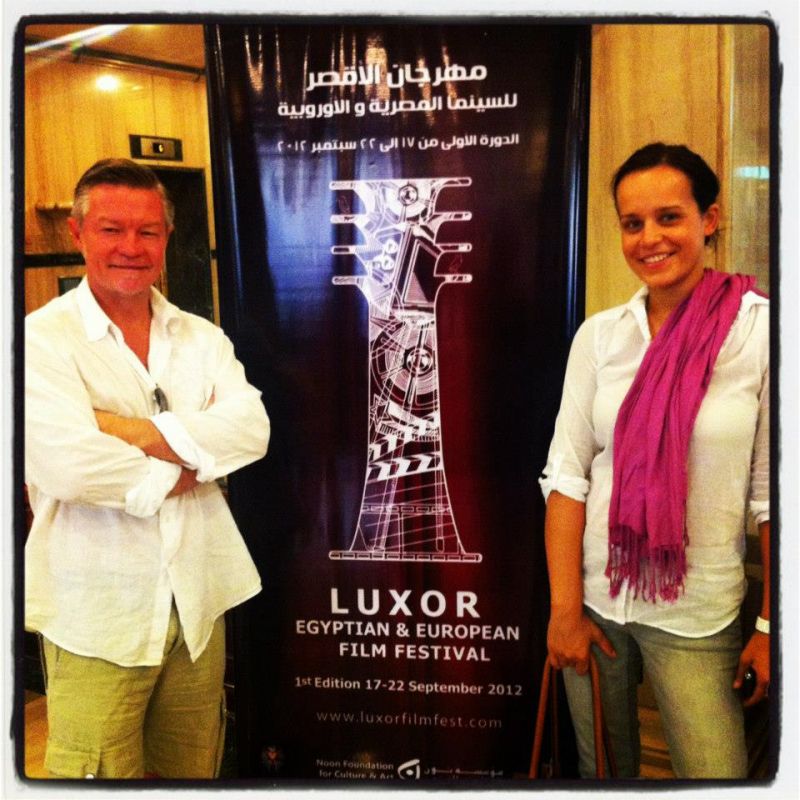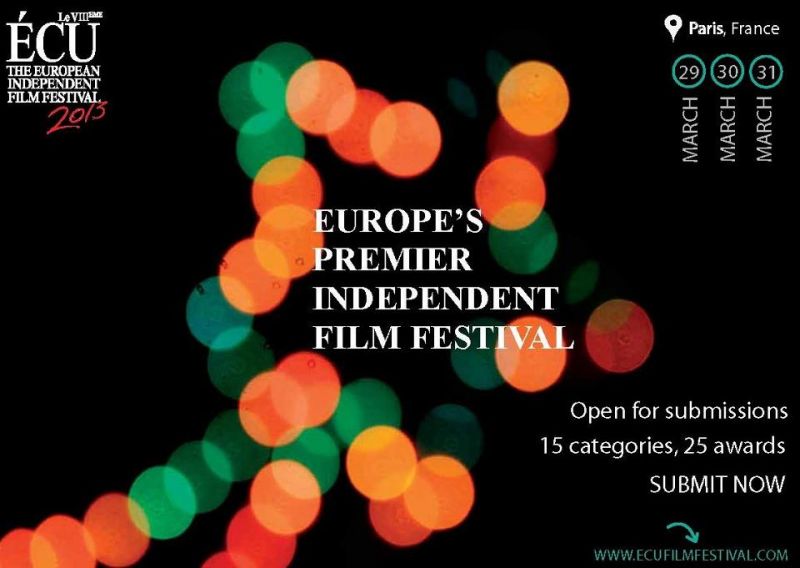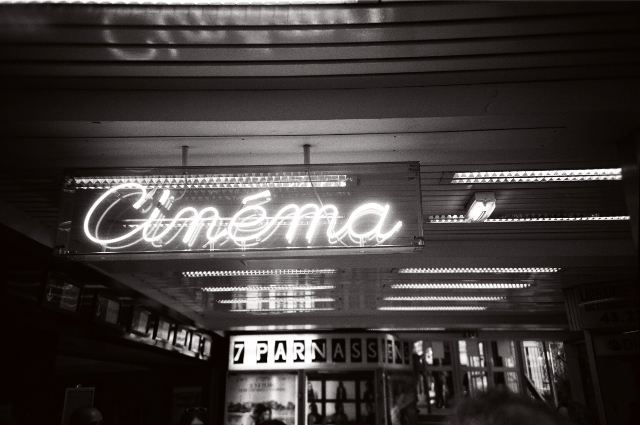|
|
||
|
Pro Tools
FILMFESTIVALS | 24/7 world wide coverageWelcome ! Enjoy the best of both worlds: Film & Festival News, exploring the best of the film festivals community. Launched in 1995, relentlessly connecting films to festivals, documenting and promoting festivals worldwide. Working on an upgrade soon. For collaboration, editorial contributions, or publicity, please send us an email here. User login |
Spotlight: Haifaa Al Mansour
Can you imagine making a movie in a country that has no movie theaters and in which the film industry is totally inexistent? Haifaa Al Mansour didn’t just imagine it but she actually did it. This week’s spotlight is presenting you Saudi Arabia’s first female director that realized the first full-length feature to be shot entirely in Saudi Arabia.
Wadjda, the first ever film to be shot in Saudi Arabia made its debut in 2012 at the Cannes’ Marché du Film, one of the largest film markets in the world and had its world premiere at the 2012 Venice Film Festival.The movie written and directed by Haifaa Al Mansour tells the story of an 11-year old girl growing up in the suburbs of Riyadh constantly trying to circumvent restrictions and break social barriers. Her dream is to own and ride a green bicycle, an unreachable luxury in the ultra traditional Gulf state. Sure, the bicycle is used by Al Mansour as a metaphor to portray all the forbidden dreams that women in Saudi Arabia might have. In an indirect way, the film is portraying the segregation of women in Saudi Arabia, where they hold a lower legal status to men, are banned from driving, biking and need a male guardian’s permission to work, travel or open a bank account. “It’s easy to say it’s a difficult, conservative place for a woman and do nothing about it, but we need to push forward and hope we can help make it a more relaxed and tolerant society,” Al Mansour said after her film premiered in Venice.
Even though Wadjda had limited audience in its own country and was given low chances of success at the beginning, the first movie ever to be shot in Saudi Arabia is a proof of courage and a way of talking openly about subjects considered taboo. All these make Al Mansour a filmmmaker to get inspired from, admire and follow in the future. Ruxandra Matei
08.08.2013 | ÉCU-The European Independent Film Festival's blog Cat. : filmmaker Saudi Arabia women Independent
|
LinksThe Bulletin Board > The Bulletin Board Blog Following News Interview with EFM (Berlin) Director
Interview with IFTA Chairman (AFM)
Interview with Cannes Marche du Film Director
Filmfestivals.com dailies live coverage from > Live from India
Useful links for the indies: > Big files transfer
+ SUBSCRIBE to the weekly Newsletter Deals+ Special offers and discounts from filmfestivals.com Selected fun offers
> Bonus Casino
User imagesAbout ÉCU-The European Independent Film Festival Hillier Scott Hillier Scott (ECU)
Scott Hillier, Founder and President of ÉCU - The European Independent Film Festival
Scott Hillier is a director, cinematographer, and screenwriter, based in Paris, France. In the last 20 years, Hillier has gained international recognition from his strong and incredible cinematography, editing, writing, producing and directing portfolio in both the television and film industries.
Scott began his career in the television industry in Australia. In 1988, he moved to London getting a job with the BBC who then set him to Baghdad. This opportunity led him to 10 years of traveling around world for the BBC, mainly in war zones like Somalia, Bosnia, Tchetcheynia, Kashmir, and Lebanon. After a near fatal encounter with a Russian bomber in Tchechnyia, Hillier gave up his war coverage and began in a new direction.
He moved to New York City in 1998. He directed and photographed eight one-hour documentaries for National Geographic and The Discovery Channel. Based on his war knowledge and experience, Hillier wrote and directed a short film titled, “Behind the Eyes of War!" The film was awarded “Best Short Dramatic Film” at the New York Independent Film and TV Festival in 1999. From that he served as Supervising Producer and Director for the critically acclaimed CBS 42 part reality series, "The Bravest” in 2002 and wrote and directed a stage play called, "Deadman’s Mai l," which ran at Le Théâtre du Moulin de la Galette in Paris during the summer of 2004. He then became the Director of Photography on a documentary titled, “Twin Towers." This was yet another life changing experience for Hillier. The riveting documentary won an Academy Award for "Best Documentary Short Subject" in 2003. In 2004, Hillier changed continents again, spending three months in Ethiopia. He produced “Worlds Apart,” a pilot for ABC America / True Entertainment / Endemol. As you can see, Hillier was and is always in constant movement and enjoys working in a number of diverse creative areas including documentaries, music videos, commercials, feature and short films.
Scott studied film at New York University and The London Film and Television School. He also studied literary non-fiction writing at Columbia University. Hillier's regular clients include the BBC, Microsoft, ABC, PBS and National Geographic. Between filming assignments, he used to teach film, a Masters Degree course in Screenwriting at the Eicar International Film School in Paris, France and journalism at the Formation des Journalistes Français in Paris, France.
View my profile Send me a message The EditorUser contributionsUser links |


















 Being a woman in Saudi means facing an “opaque” universe daily. Starting with the black colours of the clothing that needs to cover the whole body except the eyes and the hands and ending with denied access to a lot of rights that are reserved just for men, Saudi women face the gender limits imposed by mainly unwritten laws. Haifaa Al Mansour overcame all these obstacles and pursued her dream of being a filmmaker in her very conservative country of origin. Talking about her first feature film, Wadjda, she explains: "I really wanted to set it in Saudi. I wanted women there to see something of their lives in this film. It's a place where telling a story is not always easy and there were lots of things to stop me. I had a lot of boundaries placed around me, but it is worth it.”
Being a woman in Saudi means facing an “opaque” universe daily. Starting with the black colours of the clothing that needs to cover the whole body except the eyes and the hands and ending with denied access to a lot of rights that are reserved just for men, Saudi women face the gender limits imposed by mainly unwritten laws. Haifaa Al Mansour overcame all these obstacles and pursued her dream of being a filmmaker in her very conservative country of origin. Talking about her first feature film, Wadjda, she explains: "I really wanted to set it in Saudi. I wanted women there to see something of their lives in this film. It's a place where telling a story is not always easy and there were lots of things to stop me. I had a lot of boundaries placed around me, but it is worth it.”
 The first Saudi female director spoke of the difficulties she faced filming in Riyadh, despite having obtained permission from authorities to do so. She occasionally had to hide in a van in some of the more conservative areas where locals disapproved of a female film-maker mixing with men on set, and at times had to direct her male actors via walkie-talkie. She was accused of being unreligious and she even received hate mail for making the film. But the passion for filmmaking and the belief that movies are a way to communicate powerful messages and even bring tolerance, made Al Mansour overcome all these difficult conditions. "I feel so honoured, honestly, to be putting a human face on my culture. Too many women are invisible here, and I hope, in a small way, I can inspire other Saudi women to break away from the ordinary and to find success."
The first Saudi female director spoke of the difficulties she faced filming in Riyadh, despite having obtained permission from authorities to do so. She occasionally had to hide in a van in some of the more conservative areas where locals disapproved of a female film-maker mixing with men on set, and at times had to direct her male actors via walkie-talkie. She was accused of being unreligious and she even received hate mail for making the film. But the passion for filmmaking and the belief that movies are a way to communicate powerful messages and even bring tolerance, made Al Mansour overcome all these difficult conditions. "I feel so honoured, honestly, to be putting a human face on my culture. Too many women are invisible here, and I hope, in a small way, I can inspire other Saudi women to break away from the ordinary and to find success."









